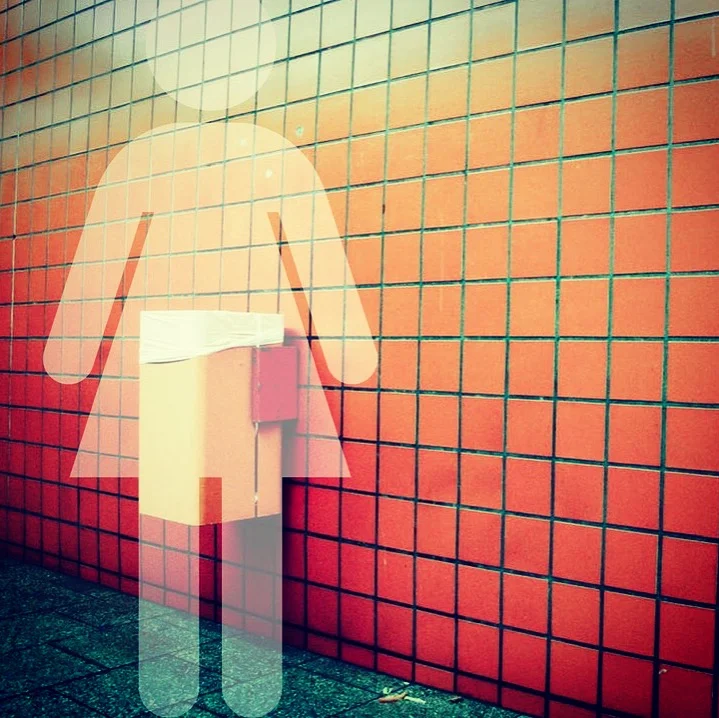I Am, Therefore I Wear
Searching for the new luxury: meaning
We all know by now – or at least we should – the facts and figures of the 'Dark Side of Our Beloved World of Fashion'. The environmental impact, the exploitation of workers and the impact on self-image. H&M's 4.3 billion-dollar pile of unsold clothes underlines once more the fact that the current market system is a waste machine and that we as compulsive consumers could easily be seen as vehicles to generate money. Christmas shopping, Valentine's Day gifts, Non-Stop Sale and Black Friday are all part of the 'Shop Till You Drop' game, invented to keep the wheels turning.
The fundaments of our economy and the prefered consumer identity are based on a continuous increase in the demand to produce goods and services. Products and services are preferably not designed to last as long as possible or to be updated or to be shared. Consumption and ownership are the fuel of our economy. Combine that with the fact that nowadays our preferences, needs, tastes, interests, lifestyles, and (sub)cultures change almost every day, and that technology and fashion trend cycles are speeding up rapidly. Clothes have become more and more disposable. Production increases, while how often we wear our wardrobe decreases.
Due to the pursuit of financial profit, cost-reduction technologies and marketing tricks, more is becoming less and material goods are stript of their true value and meaning. What does that tell us, knowing that possessions represent our extended selves? Are we that easily bored with ourselves? Has our identity become disposable and meaningless as well? If so, we might have lost more than we had bargained for!
designer Jo Cope & Photographer Michelle Marshall
Is it all in the name?
When did we start primarily thinking as consumers and lose sight of our values and the collective good? Initially, the ‘identity’ and meaning of the word consumer was more about claiming our power and our freedom of choice, as well as raising standards. But is this still the case in today's world, one that seems to be dominated by a consumer mindset and language? We are mostly seeking that which offers us the most for less.
Are we able to change these perceptions, systems, values and definitions that are so ‘pressed’ into our DNA, mindset, communication and economy? What often begins as a basis in which to understand the human mind, behaviour, sustainability and progress, suddenly reappears as a route to sell people stuff, work harder and conform to policy, in line with the ‘monetary value rules’ of our economy.
Why? What!
Our unconscious mind might already be fighting for change and transformation, as it seems more relevant to us than ever to place our and others’ choices and actions in a context that forces us to question their true value, meaning and identity. There is an expanding critical view towards brands, media and the (political) establishment, the portrayal of truth, authenticity, relationships and beauty. There is also a growing consciousness to improve health, environment, well-being and the world.
New technologies, a call for transparency and a circular economy, as well as various fashion revolutions, have opened up a dialogue on today’s issues within the fashion industry, highlighting worldwide what is happening and what we (should) do, design, produce, eat, wear … better.
But do we also dare to question why?
Behind the seams
Let’s be honest, we have a powerful but strange relationship with clothes. They reveal and shape our emotions, personality and culture, and vice versa. Fashion enriches our lives but it does come at a cost: physical, psychological and environmental.
Why do we wear fashion as intimate and as close to our skin, but turn a blind eye to the exploitation of the people who made our clothes? Why do we collect material goods obsessively, at the same time worrying about the increase of clutter and waste and the impact on the environment? Is the amount of rubbish we generate a fair indication of how much we consume or are we as humans rubbish at shopping? Are we ‘addicted’ to fast fashion in the hope of shots of confidence, self-worth and happiness?
If clothes reflect our personality, they not only show us our (unhealthy) relationship with material goods but also with ourselves and others. Now more than ever, fashion needs its voice to express its values and meaning and to respond to the individual, societal and global challenges that it has helped create. Or should I say ‘we’ instead?
Give or take
In this disposable and rapidly transforming digital age, the new luxury might not be determined by what we want to possess, but by our search for meaning.
Our unconscious desire to be able to answer ‘why’ we have, instead of only ‘what’ we have. We want to be more aware of why and what we do and value, and aim to introduce these fundaments into our business models, work environments, educational structures, design and technology systems, to create meaningful solutions, answers and a sustainable fashion future. Combine that with the fact that the definition of reality we used to rely on seems to be transforming in every possible way: we are definitely in for a treat.
We shouldn’t worry though.
If fashion today is about expressing our support for unsustainable practices, behaviour and values, then tomorrow it can be an effective call-to-action tool. Not by using marketing labels such as ‘green’, ‘sustainable’, ‘eco’ or ‘ethical’ to target ‘conscious’ consumers, but by using the engaging language of fashion itself to generate a dialogue – to tell the story, to create awareness and to bring back human values to every aspect of individuals’ lives, our society, our economy and the clothes we love to wear.


